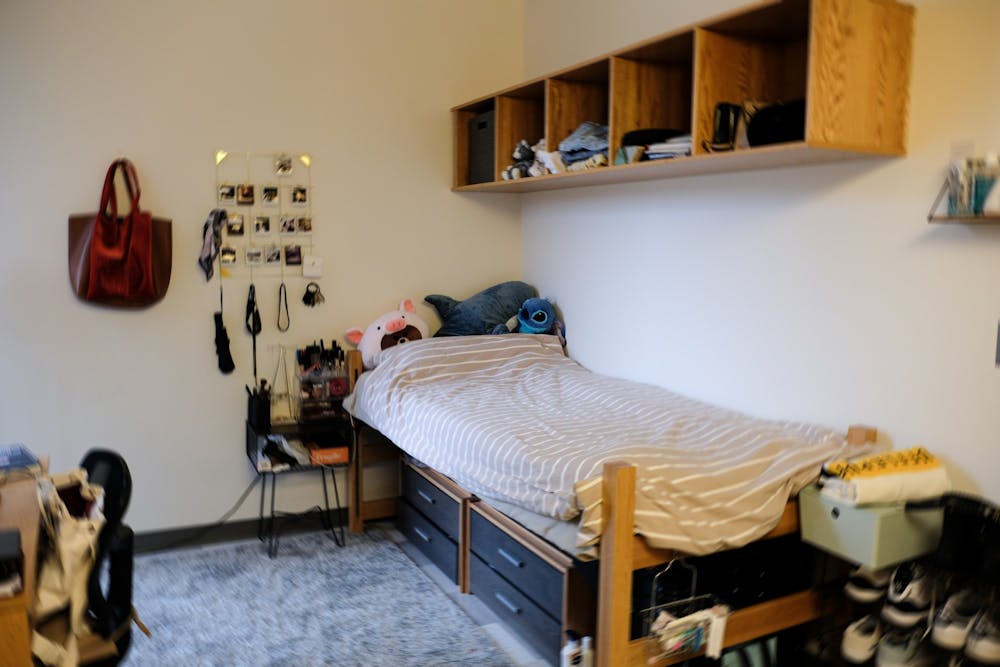What if I told you three minutes each morning could help you destress, manage your day, and lead a healthier life? While it may sound too good to be true, it's not.
Our 21st-century reality is a world obsessed with health, wellness, and beauty. And Penn is no exception. Whilst dealing with being full-time college students, we manage sports, clubs, jobs, and vigorous social lives. This means life is moving at hyperspeed, and there's rarely time to focus on anything else. When it comes to self care, time is a necessity — and frankly, there usually isn’t any.
We all are guilty of pining over the newest trend or scrolling through TikTok for hours on end trying to find a one-step cure to acne, bed head, anxiety, and stress. While I can’t give you a miracle cure, I have found the next best thing — and it costs nothing.
When my mom first handed me "Make Your Bed" by Admiral William H. McRaven, I have to admit I was far from intrigued. The only activity I thought could be more boring than actually making your bed would have to be reading about it. However, after several speeches from my mother promising this book is a “fundamental read,” I decided to give it a try — and I recommend you do too.
Former Navy SEAL Admiral William H. McRaven started this idea at his commencement speech for the University of Texas Austin. The speech was so successful that he turned his words into a self-help book that is more than worth the read. McRaven states “If you want to change the world, start off by making your bed.” The book delves deeper into the importance of the small things in life in order to set up success for the bigger ones.
As a Navy SEAL, if you failed to make your bed perfectly each day, your punishment would land you rolling around in the sand, wet, while you find your comfort and dignity slowly slip away. Making your bed is so beneficial in everyday life that it led the United States government to require our own soldiers to start each day with this task. On days that feel impossible, making your bed is always within your control.
At an Ivy League institution, our lives are far from predictable. No matter how hard you try, finding a routine will always be a struggle due to the fast-paced, over-scheduled, and never-ending weeks students experience far too often. However, routine is critical to maintaining a healthy balance in day-to-day life. A routine ensures you are able to make time for each area of your life, whether it be family, academics, athletics, or the packed social schedules we’re all too familiar with. Not only that, but routine can also be critical to your health itself — the benefits of routine have also been scientifically proven and include reduced stress, better sleep, and overall better mental health.
So, how do you do the seemingly impossible and create a routine in an unpredictable world? You make your bed. While making your bed seems simple enough, it creates benefits that go far beyond having a tidy dorm room. Waking each morning and dedicating two to three minutes to make your bed helps you to take control of your life. No matter what amazing or terrible things are coming your way, you can always be sure that tomorrow will bring one thing: a made bed in the morning.
Not only does this promote routine and help you control your life, but it also sets your day up for organization and success. It gives you a break, even if only a few minutes long, to ease your mind and focus on a simple task that we are all totally capable of doing.
So, instead of turning to Gwyneth Paltrow or TikTok for your next lesson in wellness and self care, consider simply making your bed. It’s not time consuming, not hard, and completely free. This simple task will have effects that last way beyond the time it takes to complete, and put you on your way to being the best version of yourself.
ANNIE BINGLE is a College first year student from Connecticut. Her email is bingle@sas.upenn.edu.









